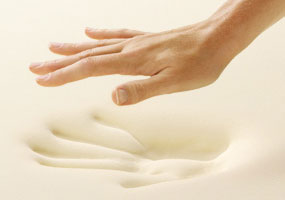
Global Organic Textile Standard
The Standard
GOTS (Global Organic Textile Standard), introduced in 2006, is a globally accepted standard for textiles. It certifies not only the composition of the textiles bearing the GOTS seal, but the processing and handling, as well as the environment and the working conditions of employees of plantations and textile mills. The organization labels it as “Comprehensive Rules for Ecological and Socially Responsible Textile Production.”
Several organizations which set standards for various products and operations worked together to set the parameters of GOTS. The goal was worldwide recognition of requirements which ensure that textiles maintain their organic state from farmed fibers to finished product. This was in response to a demand for one universal standard for all producers of textile products (such as clothing, draperies and bedding) in all countries. This certification had to be third party to have the highest credibility and authority.
The Organization

GOTS is administered by Control Union (CU), a network of operations for inspections, testing and monitoring. The original operations of CU were tracking, verification and management of shipping around the globe. This made the firm a natural candidate for managing the testing and certification for the Global Organic Textile Standard, since they already had the needed presence and the expertise in place.
Certifications
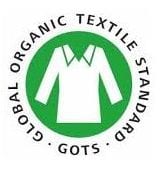
GOTS – The now well-known seal with the white shirt on a green disk is not the only GOTS certification. The primary objects of GOTS certification were cotton and linen, both plant fibers, but it could conceivably be used for fabrics with other botanical fibers, such as hemp and coconut husks.
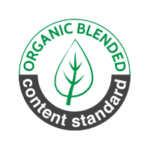
Organic 100 – These are two specific divisions of GOTS certification. The Organic100 is for textiles which have a 100% organic composition. A few examples are all organic cotton, all organic linen, and linsey-woolsey made of organic linen and organic wool.
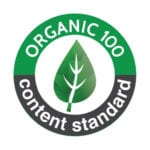
Organic Blended – also known as “_% organic” – is for blend of organic and synthetic fibers, such as poly-cotton. It certifies that the fabric has the stated percentage of natural fiber, and that fiber is certified organic.
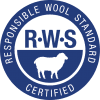
Responsible Wool Standard – The Responsible Wool Standard (RWS PRG 01192) was developed to answer concerns of consumers not only over toxicity in textiles, but the welfare of fiber-producing animals. It applies only to the farms where sheep are raised (nomadic sheep herding is not covered). Required is year-round pasture-grazed sheep (not confined), and no chemicals (such as in sheep dip) or hormones used. Not yet a problem, it would exclude wool from genetically modified sheep.
The RWS certification is used by sheep farmers and processors, handlers and distributors of wool, from the pasture to the garment manufacturer. Where memory foam mattresses are concerned, this applies to wool in mattress cover fabrics, fire blockers, and batting.
An International Working Group, including Control Union, developed the Responsible Wool Standard. Verifying the validity and workability of the standard was conducted by CU.
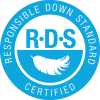
Responsible Down Standard – As with the Responsible Wool Standard, public concern for humane treatment of animals led to development of the Responsible Down Standard. It applies to both down and feathers.The key requirement – actually the defining one – is no live plucking of feathers and down. This even excludes use of molted material. As a result, only down and feathers from humanely butchered ducks and geese may be certified.
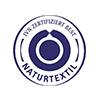
IVN – GOTS certification is now the initial requirement for IVN certification. IVN (Internationale Verband der Naturtextilwirtschaft) – which means “International Association of Natural Textile Industry,” is a German organization with strict requirements. It is used in the European Union.
Extent
As the OEKO-TEX seal is now found extensively on fabrics sold in North America and Europe to verify that fabrics used are free from harmful substances, the GOTS seal is now expected to be found on textile products claiming to have organic content. Closely related is the newer Global Organic Latex Standard (GOLS) seal.

